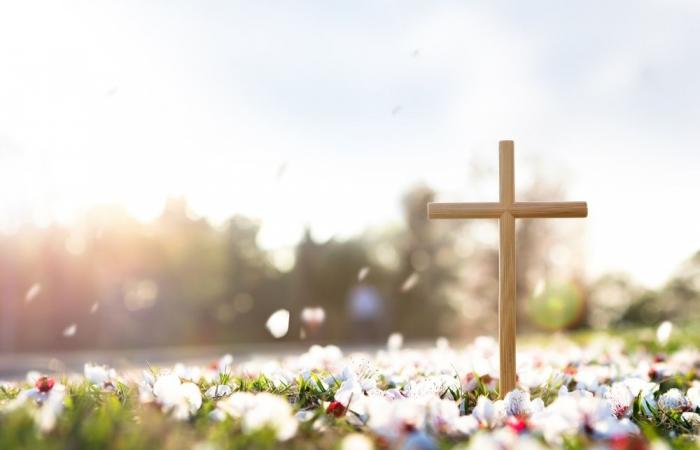Traveler and photographer David Hainall has experienced many funeral rituals during his travels around the world. He saw them with his own eyes in Nepal or even in Bhutan. These are countries that go beyond our Central European concept of mourning and sadness. In Central or South America, they are rather spectacular celebrations.
“I respect everything I see and experience,” says David, recalling: “A great experience for me was visiting the Pashupatinath Hindu temple in Kathmandu, Nepal, where, among other things, corpses are cremated on the banks of the sacred river, similar to Varanasi in India. Interviews with Buddhists in Bhutan who do not kill any living creatures because they believe they could be the incarnation of their ancestors were also interesting.
It is the Indian city of Varanasi that is “famous” for its funeral rituals. “There are said to be around fifty thousand funerals a year, which is about 136 a day,” says David. Reason? Hindus believe that death in Varanasi, cremation and scattering of the ashes into the Ganges River will take them straight to heaven and their souls will enter nirvana, breaking free from the eternal cycle of reincarnation. Similar rituals are the spice of David’s journey. He is interested in human stories, fairy tales and legends, which often say more about local people than all encyclopedias in the world.
Thinking about death every day
“I will never forget the conversations with the Bhutanese Buddhists. They agreed that they do not catch or kill fish, because they can be the incarnation of other people who did not selflessly do good and benefit in their lives, or they did not succeed in something in their lives. Similar comments were made by drivers in Thailand who honk at stray dogs so they don’t harm them. They believe that if they deliberately run over a dog and kill it, their soul will be reincarnated in the dog after death,” explains David.
A funeral will probably never be completely happy or downright positive, but it can at least be bittersweet. We will write a big speech, reminisce aloud and quietly, play or sing songs, write messages, or even plant a tree, release balloons, drink, drink…
But how do these people perceive death as such? For example, people in the already mentioned Bhutan have a very interesting and inspiring approach. This country is usually associated with happiness and a happy life, while people there practically constantly think about death, specifically it is customary to remember it five times a day. Incomprehensible for us. How can thoughts of death be related to a happy life?
But research shows that there is something to it. We are afraid of death and it is a deterrent to us. But people who consciously and regularly reminded themselves of it during the research found their fears melted away and realized it was a completely natural part of life.
While in our country everything practically ends with a funeral, only now and then someone observes six weeks of mourning, in Bhutan, death is followed by 49 days full of rituals that help to cope with the death of a loved one. Of course, the Bhutanese also feel sadness. But they don’t deny it, they accept it and they don’t suppress their feelings. This makes them better able to deal with them.
It can also be bittersweet
The nature of the Central European is not yet set up for such an approach. Nevertheless, many things are changing, and it is already possible for us to experience the last farewell positively, with good memories. The Undertaker, an association that provides alternative funeral services and counseling for the bereaved, helps with this.
“We try not to scare people, not to cause them trauma, but on the contrary to help them from it. We already know that our loved one has died. Now is the time to remember his life, all that we experienced with him, the good, the fun, but also the sad… The funeral will probably never be completely happy or positively positive, but it can at least be bittersweet. We will write a big speech, reminisce loudly and quietly, play or sing songs, write messages, or even plant a tree, release balloons, drink, eat…,” describes one of the funeral guides Oleg Vojtíšek.
Cheerful cemetery in Romania. Source: Courtesy of David Hainall
One of the reasons undertakers do this is because of children. They want to avoid the trauma of the funeral, to get used to death as a part of life. “It will help them when they grow up. That’s why we make the funeral understandable and full of love for the deceased. For example, they paint a picture of their grandmother and release it into the sky in a balloon. Or they write a note on her coffin. Or we put together paper boats and write messages on them, and then we watch them float away for a long time,” he lets us see his work.
Advertisement
The so-called pre-funeral also contributes to a harmonious departure from this world, a kind of farewell, as long as we have the strength left for it. “Maybe we already know the diagnosis and know when our end will come. And maybe we are just old and simply feel that death is slowly approaching. Historical sources prove that it was common to say goodbye on the deathbed: the father would gradually call his children, his wife, his friends… Today we have confined death to the ICU or LDN and we do not manage to say goodbye properly,” points out Oleg Vojtíšek.
Pre-funeral as an opportunity
And what does such a pre-funeral look like? “It’s a chance to really say goodbye. Reconcile with yourself, with death, with family, friends and colleagues. To settle old disputes, to remember the good things. And maybe even learn a lot of beautiful things about yourself. We will finish things that there was no time for, or that seemed banal to us – and yet they are not. How many people do we forget to tell them we love them? Would we think of telling our partners that they can live happily without us and find someone new? To the children, that we know they love us even if they don’t visit the grave regularly? In this way, we will relieve them of a number of regrets, at the same time we will clarify those that arose during our lifetime, and we will “let go” of each other. But most importantly: at the pre-funeral we will celebrate life, its joys and sorrows, we will cry and laugh. And it will be an experience of a lifetime. For a dying person, it can be the last chance to see guests, make themselves happy and fulfill what they did not manage to do. There is nothing to limit yourself, nothing to be ashamed of, nothing to fear,” advises Oleg Vojtíšek.
The very act of caring for a dying person can be reconciling. Knowing that it is coming to an end, we are often closer than we have been in our entire lives. These are very intimate and fragile moments. “I am incredibly pleased that more and more people want to care for their dying person at home. Even though I know it’s religious. But believe me, in practice quite often we meet people who have experienced it, and according to their words, it was a gift for them.”
Funeral directors are now preparing a new concept: a commemoration ceremony modeled after Mexico’s Day of the Dead (Día de Muertos). “Because mourning doesn’t end with a funeral, it begins. Grief returns in waves. Maybe we thought of something else that we need to say to the deceased, or we want to tell him the news. Perhaps we are consumed by guilt for things beyond our control. The surroundings have gradually passed through death and we feel more and more abandoned. It is on anniversaries that death presses upon us the most. It is an opportunity to invite family, to establish or repair relationships that have been interrupted by death. The essence of the meeting is to meet, to remember, to say the unsaid, to try to dissolve old relationships and establish new ones. It’s supposed to be a nice and relaxed meeting – let’s definitely not confuse it with our Souls, which are rather sad and mournful,” he adds.
You can find more information at: https://www.fototoulky.net/ (David Hainall) and https://pohrebnipruvodci.cz/
photo: Shutterstock, source: Author’s article
Tags: Bhutanese celebrate death Funeral guides changing situation Czech Republic
-





